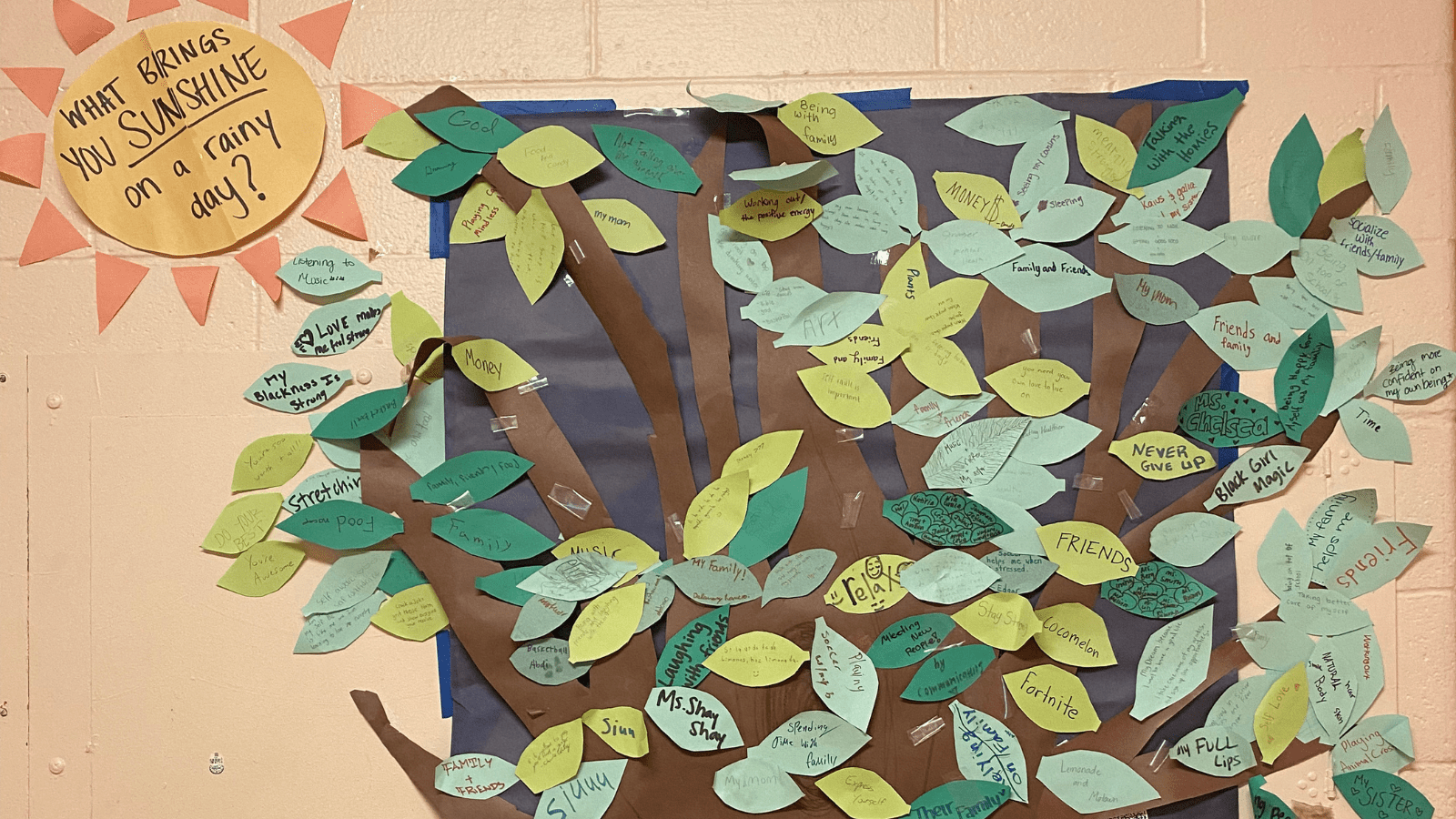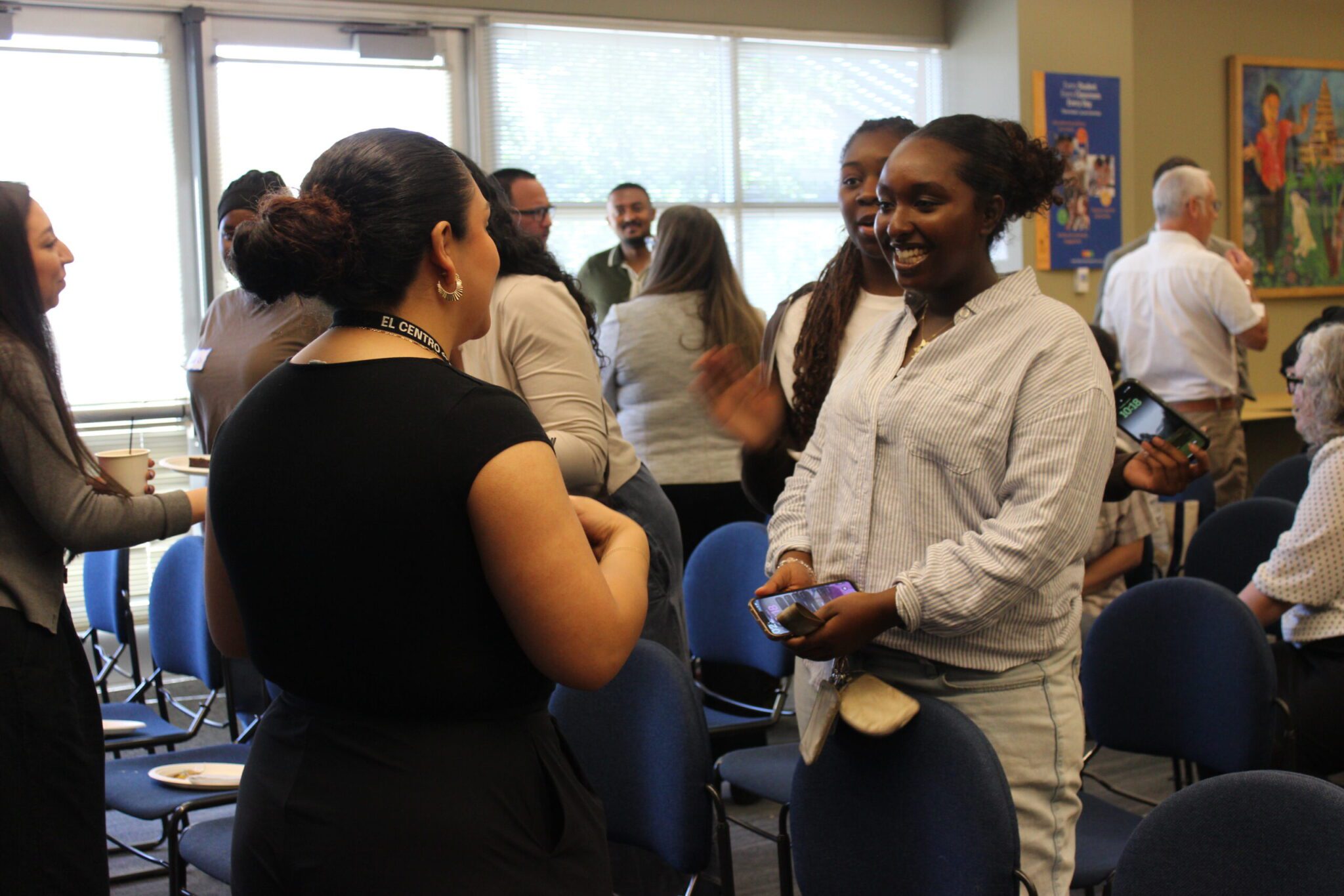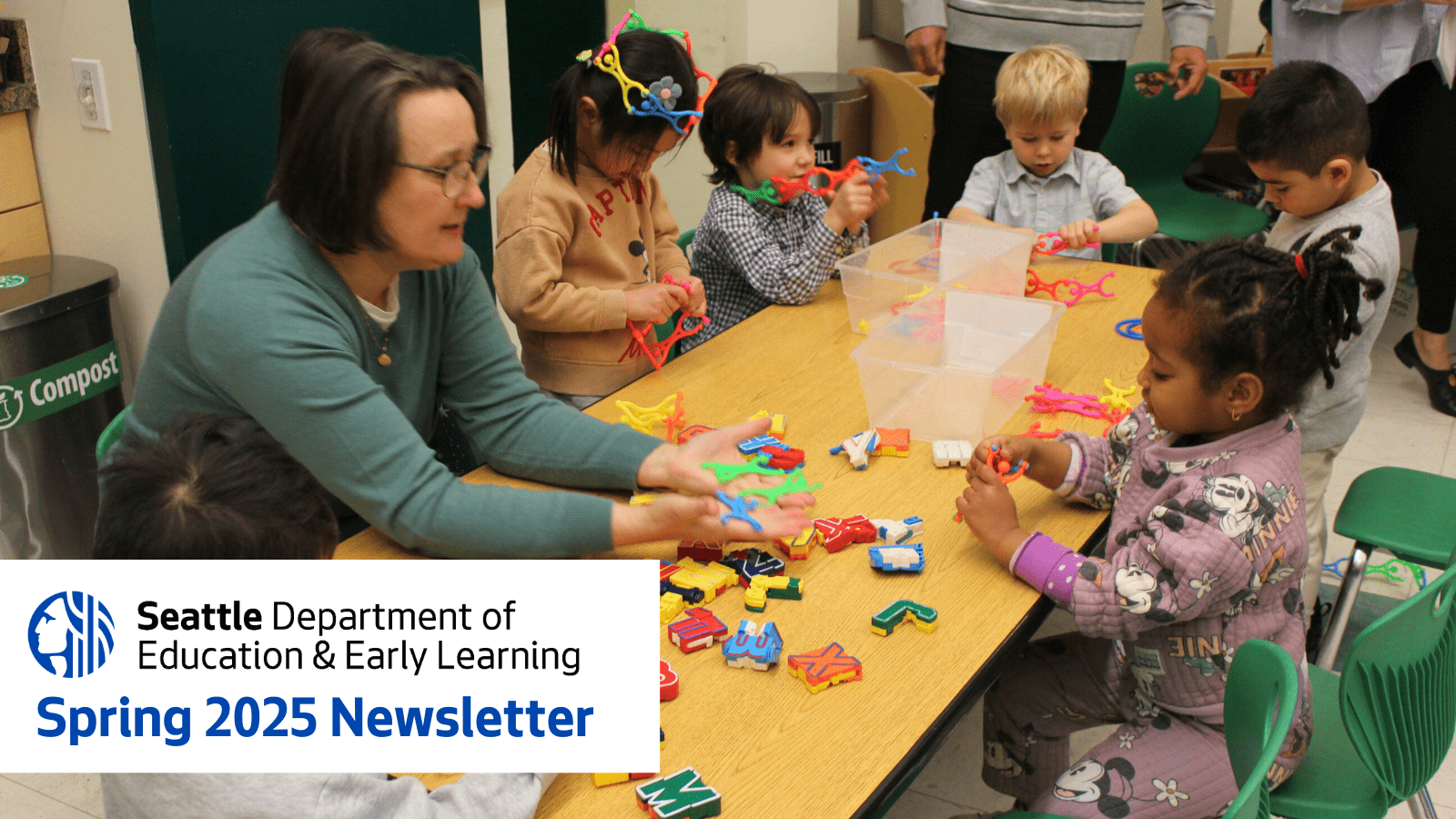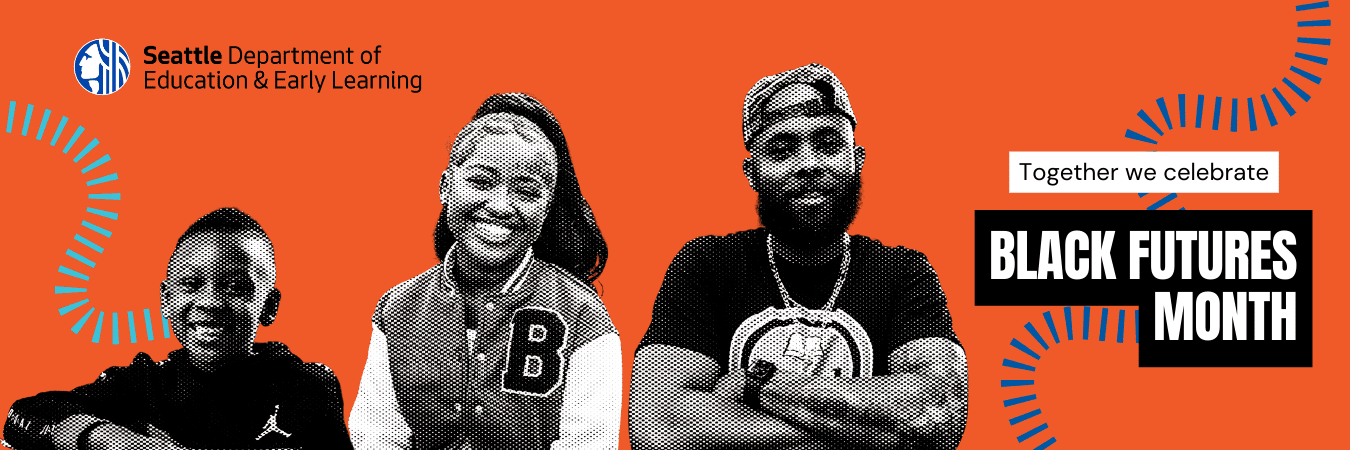 Image depicts an art project by Rainier Beach High School students about what brings them sunshine on a rainy day.
Image depicts an art project by Rainier Beach High School students about what brings them sunshine on a rainy day. Investment will build a framework of student-informed resources and services
SEATTLE (May 16, 2023) – Youth mental health is at crisis levels due to the ongoing impact of social isolation from remote learning, gun violence, and the negative side of social media. Seattle students are demanding alternative services and today, the City announced the creation of the Student Mental Health Supports Pilot in response to growing behavioral health needs. This $4.5 million investment brings together schools, students, community organizations, Seattle Public Schools (SPS), and Public Health–Seattle & King County (PHSKC) to respond to what many public health professionals identify as a crisis of our time.
“A thriving future for Seattle’s youth requires addressing the unprecedented mental health needs facing students and young people today,” said Mayor Bruce Harrell. “Our solutions must be informed by those impacted – and students have been clear that more behavioral health resources are needed in our schools. This pilot program is a step forward to help those struggling with mental health challenges, promote overall youth well-being, and give every student the tools they need to be healthy in school and life.”
Americans are more socially isolated than ever, with young people of color, LGBTQ+, and low-income people at the highest risk of harmful health effects like suicidal ideation, according to a new report by the U.S. Surgeon General. Students struggling with mental health display symptoms that extend beyond anxiety and depression, and can show up as bullying, substance use, and disengagement from school. Students may also face stigma about sharing emotions and accessing clinical care at home, school, and in their communities. Research shows providing health services at schools is an effective strategy to improve student mental health and academic outcomes, according to the University of Washington’s School of Mental Health Assessment Research & Training Center. Considering the high-risk factors, dedicated support will be provided for students of color.
| FIVE PILOT SCHOOLS FOR MENTAL HEALTH |
| Aki Kurose Middle School → Rainier Beach High School* |
| Denny Middle School → Chief Sealth High School* |
| Ingraham High School |
PILOT MAKEUP, SELECTION, AND CHARGE
The Student Mental Health Supports pilot group includes representatives from:
- Five schools (12 adults and 10 students),
- A dozen community organizations,
- Three clinical health partners,
- Seattle Public Schools, and
- Public Health–Seattle & King County.
Through a series of learning community convenings, an assessment of available resources conducted with SPS and PHSKC, and the launch of new student supports, the pilot group will develop a framework and target outcomes that will guide expansion of services and schools starting in the 2023-24 school year.
Working with PHSKC, DEEL selected five pilot schools with elevated mental health needs and who were ready to provide increased services. Selected schools include two sets of feeder schools to strategically align resources and ensure continuity of support for rising 9th graders. Pilot schools determine their goals and strategies and have each received $125,000 to implement services through August 2023.
Students from the five pilot schools and the Seattle Students Union are participating in six listening sessions to advise on the change they seek and resource allocation. Student need varies across schools; however, citywide students are united in their request to connect within school settings with trusted adults who share similar identities and life experiences, whether in clinical or non-clinical settings.
STUDENT-INFORMED STRATEGIES FOR IMPROVED MENTAL HEALTH
The pilot strategy empowers schools to tailor student-informed resources to their school community through clinical and non-clinical care options. In addition to clinical mental health counseling offered through School-Based Health Centers by school staff, and other community partners, students will be able to learn effective coping skills from other trusted adults at school or built-in to their classes. Non-clinical supports may include programs encouraging positive self-expression through cultural education such as art, dance, and other activities that build healthy peer relationships. Services will be provided within and outside of the school environment, using approaches respectful of the diverse student cultures, identities, and backgrounds across the city. DEEL is developing a process to expand services to additional schools. This network of schools will be announced in August 2023.
The new mental health supports for students complement existing investments in 29 SPS school-based health centers (SBHCs) funded by DEEL and PHSKC and run by community health care partners. SBHCs provide comprehensive health services, including mental health care, to keep kids healthy and in school. During the 2021-2022 school year, SBHCs provided care for nearly 18,000 students, surpassing pre-pandemic levels.
More City initiatives to empower parents, caregivers, and community leaders to recognize the signs of youth behavioral health issues and help youth access the resources they need are expected to be announced in the upcoming months.
WHAT PEOPLE ARE SAYING
Rainier Beach High School Student
“As high school students, we need more help from counselors who understand our experiences and come from similar backgrounds as us. We also want our kids of color to experience less violence in our community, so we can feel safe and supported. Creating a positive space in our high schools is crucial for addressing mental health issues and making sure we have the resources we need to be successful.”
Chetan Soni, Executive Director, Seattle Student Union
“After the tragedy of the Ingraham High School shooting, students took to civic action by walking out of their classes to push lawmakers to do something, anything, that would make Seattle Students safer. The Seattle City Council listened—authorizing 4 million dollars for youth mental health support and empowering youth who are the experts in their schools to lead the way on how to allocate those funds.”
Hugo Sanchez Garcia, contracted staff, Chief Sealth International High School
“The impact of a caring adult who takes the time to connect with a student struggling with absenteeism can be a powerful catalyst for growth and development. My chronically absent students can face additional challenges, like language barriers, that can increase a sense of isolation. Trusted adults are critical to getting them the support they need to get back on track.”
Tammy J. Morales, Seattle City Councilmember, District 2
“Our kids deserve mental healthcare. Unfortunately, we know many of them don’t get the care they need—especially BIPOC kids and students from the South End. Despite this, Seattle students are leading the movement to fix their school’s overwhelmed mental health systems. I’ve met with a lot of students over the past six months, and their brilliance continues to blow me away. I am excited for this program to get under way and to do what I can to support their vision. I can’t wait to see what they do next.”
Teresa Mosqueda, Budget Chair, Seattle City Councilmember, Position 8
“I am profoundly grateful to the student leaders who have called for action, not thoughts and prayers; who have called for policy and resources, not platitudes and process. That’s why I worked to secure the $4 million for youth mental health in last year’s budget. The tragedy at Ingraham High School is a recent example of how the public health crises of gun violence and mental health needs are plaguing students in Seattle. I look forward to continuing to follow the lead from youth directly affected by these compounding public health crises to improve the health, opportunity, and safety for all students, families, and workers in schools throughout our city.”
Dr. Dwane Chappelle, Director, Seattle Department of Education and Early Learning
“Students’ rate of academic success is limited if they don’t feel well enough fully participate in class. This City investment alone is not enough to solve the student mental health crisis; however, it’s an important step forward, strengthening the safety net of services to better support student mental health wellness.”
Dr. Brent Jones, Superintendent, Seattle Public Schools
“At Seattle Public Schools, our commitment on student wellness is unwavering. The new Student Mental Health Supports Pilot will help provide the support our students need! The critical need for school-based mental health support came into sharp focus as our community has emerged from the COVID-19 pandemic. The dire need for additional mental health and behavioral resources for our students is clear. We as a community must rise to the occasion and provide our young people with mental health services and providers with as few barriers as possible.”
Dr. Faisal Khan, Director of Public Health—Seattle & King County
“Our young people have experienced uncharted levels of loneliness and isolation – before and during the COVID pandemic – and that creates significant threats to their growth and overall well-being. Focusing supports for mental health and wellness within schools is a proven strategy to meet the specific needs of each community, as well as supporting students’ academic and life success.”


